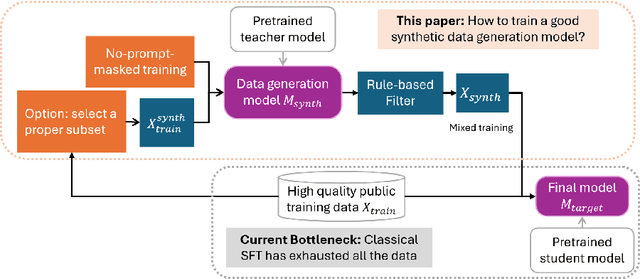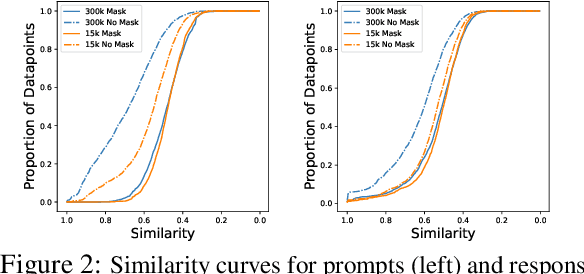Rethinking Data Synthesis: A Teacher Model Training Recipe with Interpretation
Paper and Code
Oct 27, 2024



Recent advances in large language model (LLM) training have highlighted the need for diverse, high-quality instruction data. Recently, many works are exploring synthetic data generation using LLMs. However, they primarily focus on prompt engineering with standard supervised instruction-finetuned models, which contains a fundamental limitation: these models are optimized for general question-answering/problem-solving rather than data generation. We propose a paradigm shift named \textbf{NOMAD} by investigating how to specifically train models for data generation, demonstrating that this task differs significantly from training a classical LM. We identify two key factors: no-prompt-masked training and proper training set size selection. Our method, NOMAD, shows substantial improvements over baselines, achieving >4\% gains in TriviaQA and >2\% in GSM8K with limited training data. Finally, we offer new insights by interpreting synthetic data through the lenses of "relevance" and "novelty".
 Add to Chrome
Add to Chrome Add to Firefox
Add to Firefox Add to Edge
Add to Edge